Lothian Island Wildlife Sanctuary is located in a small town in West Bengal’s Gangetic Delta, within the Hugli-Thakuran Estuary, and is part of the Sundarban Biosphere Reserve. A variety of mangroves and mangrove-associated flora are found at this location. Moreover, various species of estuarine crocodiles, olive ridley sea turtles, spotted deer, and jungle cars are found in this wildlife sanctuary. In this guide, we’ll learn everything that you need to know before planning your trip with your friends and family.
Location
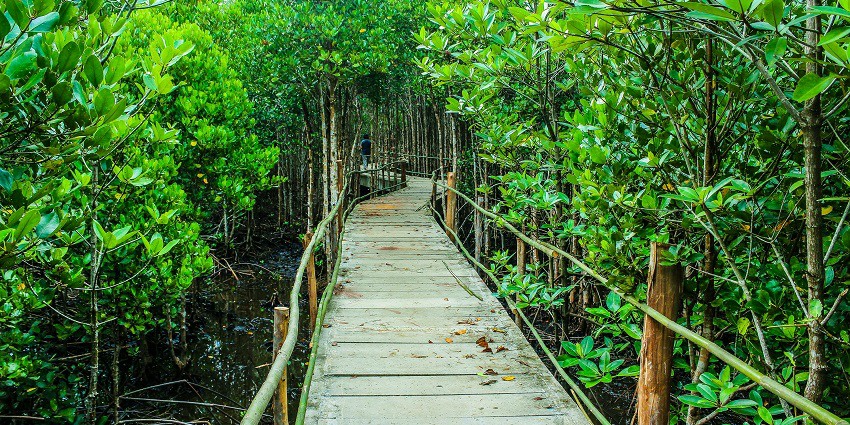
Photo: icon0 com / Pexels / Image For Representation Only
Before planning a trip to Lothian Island, it is important to gather all information about the Lothian Island wildlife sanctuary address. This wildlife sanctuary is located at the junction of the Bay of Bengal and the river Saptamukhi. It is spread out over 38 square kilometres on the island and is bounded by the Saptamukhi River.
Suggested Read: A Complete Guide For Rock Climbing In Darjeeling
How To Reach

Photo: Pinakpani / Wikimedia Commons
By Train: The nearest railway station is Namkhana, which is well-connected to Kolkata. Take a train to Namkhana from Kolkata; it is approximately 72 km from here.
By Road: To get to the sanctuary once you arrive in Namkhana, take a bus, cab, or rickshaw.
By Air: The nearest major airport to Lothian Island Wildlife Sanctuary is Netaji Subhas Chandra Bose International Airport in Kolkata, which is some 100 km away.
Places To Visit Near Lothian Island Wildlife Sanctuary
Discover the natural beauty and rich cultural heritage surrounding Lothian Island, with unique wildlife, serene landscapes.
1. Sundarbans National Park
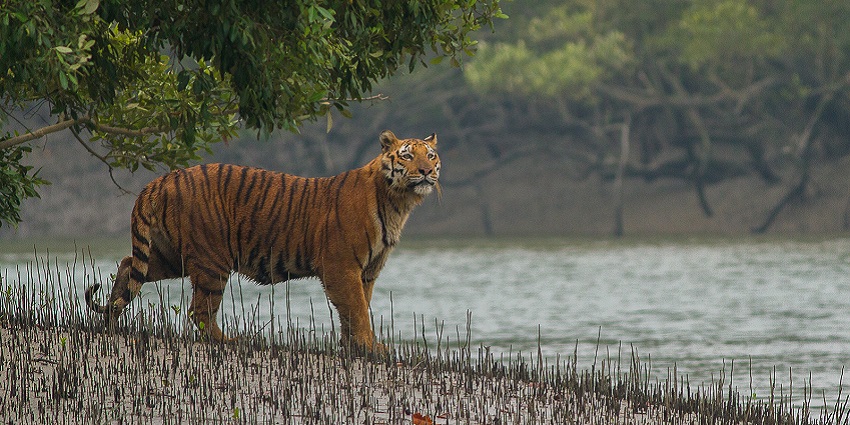
Photo: Soumyajit Nandy / Wikimedia Commons
UNESCO has designated Sundarbans National Park as one of its World Heritage Sites. It is home to the secretive Royal Bengal Tigers and the largest mangrove forests. It extends over an area of 1,300 square kilometres. The unique ecosystem offers many complex waterways and a range of flora and fauna species to view. The many migratory birds will surely delight any birdwatcher, including those who come to see them during winter. The high biodiversity in the park makes it a must-stop destination for all nature lovers and wildlife photographers.
Best Time To Visit: October to November
Entry Fee: ₹100 for Indians and ₹500 for foreigners
Distance From Lothian: 30 kilometres
Suggested Read: Shopping Malls In Kolkata
2. Sajnekhali Watch Tower
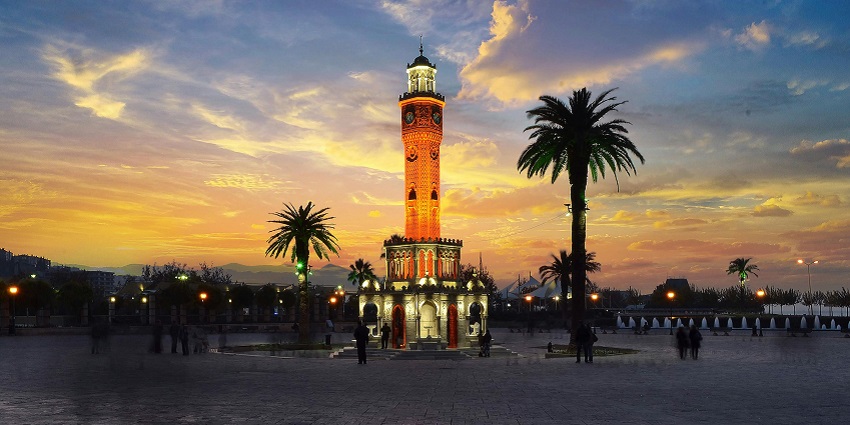
Photo: Hakan Tahmaz / Pexels / Image For Representation Only
The Sajnekhali Watch Tower is one of the most important sightseeing spots in Sundarbans. It can also serve as an entry point for thousands of national park visitors, and from here, tourists can easily access a local fauna-based museum on wildlife. In fact, from here, travellers could potentially view tigers, crocodiles, and birds across vistas. This also has a temple of Bonbibi, which points to the cultural identity of the local communities and therefore enriches the tourist experience.
Best Time To Visit: October to November
Entry Fee: Free
Distance From Lothian: 35 kilometres
3. Halliday Island
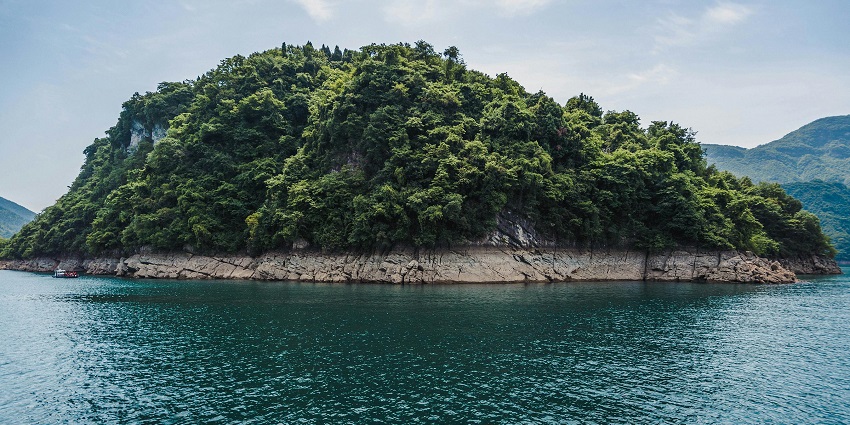
Photo: jiawei cui / Pexels / Image For Representation Only
Halliday Island is a silent land on earth that stays adjacent to Lothian Island. It is an area full of greenery and peace. This island contains very rare species like barking deer. Bird-watching opportunities are open, and this place is something like heaven for nature lovers. Beaches remain untainted, and the mangrove forests provide the best scene for photography and relaxation. Halliday Island is ideal for solitude in nature with all the rich biodiversity of the Sundarbans region.
Best Time To Visit: October to November
Distance From Lothian: 25 kilometres
Suggested Read: Yumthang Valley In December
4. Sagar Island

Photo: Tarunsamanta / Wikimedia Commons
Sagar Island is famous for its religious and scenic sandy beach where the Ganges River meets the Bay of Bengal. The island comprises the Kapil Muni Temple, which attracts thousands of pilgrims to this island every year during the annual Ganga Sagar Mela. This destination allows people to relax in serene surroundings, experience local culture, and get to be a part of religious rituals as well. Therefore, scenery and cultural experience make Sagar Island an absolute must-visit destination for people who have been exploring the Sundarbans area.
Best Time To Visit: November to February
Distance From Lothian: 60 kilometres
Where To Eat

Photo: Robin Stickel / Pexels / Image For Representation Only
Lothian Island has several great eateries around it. Gangasagar’s local Bengali cuisine is combined with fresh seafood offerings. Sundarbans Eco Village gives the experience of a retreat while having delicious meals. Shacks at Bakkhali Beach serve snacks and beverages. In Kakdwip, you will find restaurants specialising in traditional dining needs, and Namkhana has several eating joints where you can get quick meals.
Suggested Read: All You Need To Know To Explore Mahananda Wildlife Sanctuary
Where To Stay

Photo: Pixabay / Pexels / Image For Representation Only
Lothian Island offers several accommodations that are available for you to choose from. Hotel Sonar Bangla is available as a luxury experience with comfort, Sunderban Jungle Camp as an eco-friendly experience, the Sundarbans Tiger Camp with a rustic touch, and Bonani Resort with its beautiful views, while at Sunderbans Homestay, a local touch with authentic hospitality is experienced.
Best Time To Visit
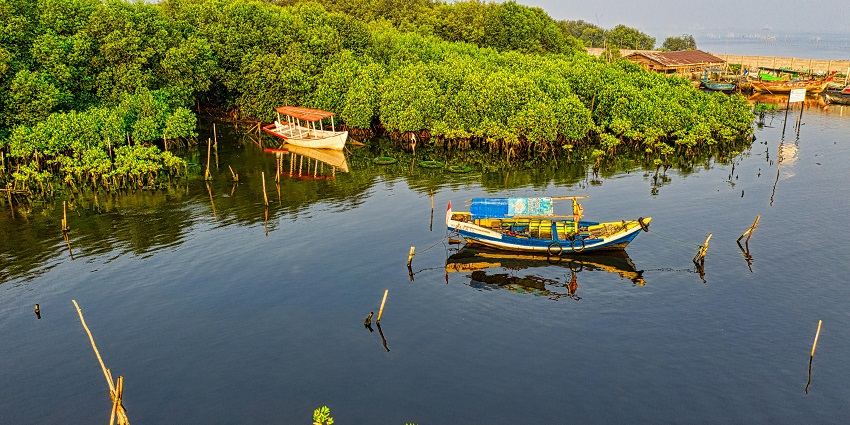
Photo: Tom Fisk / Pexels / Image For Representation Only
The best time to visit the Lothian Island is from October to March, as during this season, the climate remains amiable, and there are optimum chances of wildlife sightings. During these months, the visitor can indulge in many Lothian Island activities that he or she wants to experience.
Suggested Read: Exploring Ghoom Monastery
Other Factors To Consider
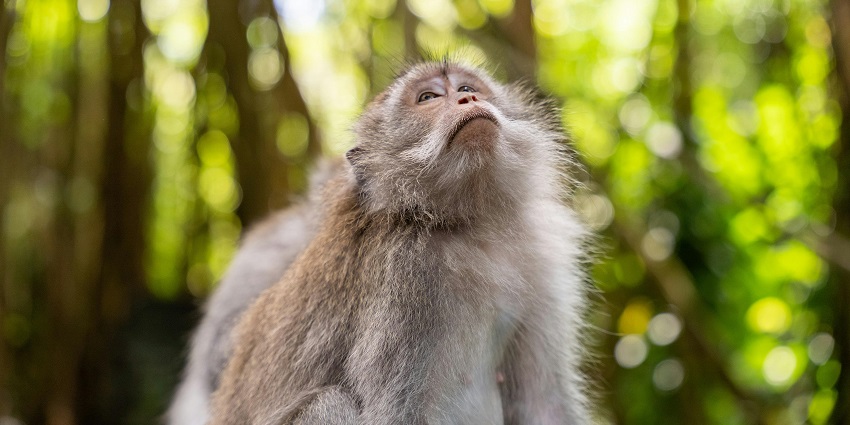
Photo: Pragyan Bezbaruah / Pexels / Image For Representation Only
Average Cost Of The Trip
The average cost of a trip to Lothian Island can range from ₹3,000 to ₹6,000 per person. This includes transportation, entry fees, and meals, though additional expenses may arise for guided tours and accommodations nearby.
Tips For Travellers
- Wear comfortable clothing and strong shoes to walk and get into the thick of nature to appreciate what the sanctuary offers.
- Bring sufficient water, snacks, and insect repellent to enjoy outdoor recreation without a glitch.
- Photography is permitted within the sanctuary, but out of respect for the wildlife, it would be best to avoid annoying them while taking their picture.
Lothian Island Wildlife Sanctuary is an exciting destination for nature enthusiasts that provides a view into the tremendous biodiversity of Sundarbans. To enjoy various activities in the sanctuary such as bird watching and eco-tours can be enjoyed. Remember to take those memorable Lothian Island photos. Book your trip with TripXL to explore the best wildlife sanctuary.
Cover Photo: Christy Rice / Pexels / Image For Representation Only


 WhatsApp
WhatsApp
 Twitter
Twitter









